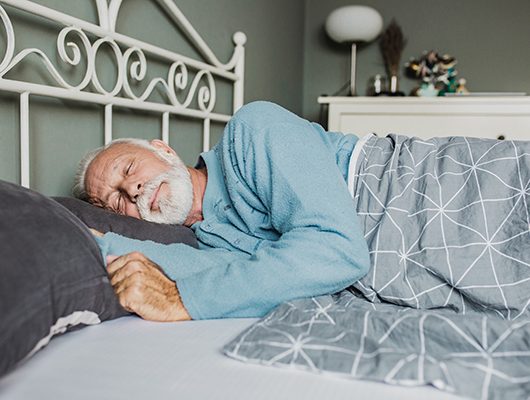Aging brings with it multiple challenges, but also opportunities to maintain an active and healthy life. One of the most critical aspects of well-being in old age is the preservation of cognitive function, essential for autonomy and quality of life. A recent study published in the International Journal of Behavioral Nutrition and Physical Activity reveals how physical activity and sleep quality directly influence the daily cognitive performance of older adults.
Mental deterioration in older adults affects their quality of life and their independence, which is why it is essential to identify the modifiable behavioral factors that help keep the mind active. Physical activity is one of those behavioral factors identified as protective of cognitive function, reducing the risk of dementia and improving short-term mental performance. On the contrary, spending a lot of time sitting can worsen these capacities.
The role of physical activity and sleep in cognitive function
Studies indicate that the benefits of exercise on the brain occur shortly after it is performed, thanks to increased blood flow and stimulation of chemicals in the brain. However, it is not clear whether these benefits are maintained until the following day. Some studies have found that physical activity could improve memory and other mental functions the following day, but there are no studies that have explored these aspects in older adults or considered the impact of sleep.
Sleep quality also plays an important role in mental health. Sleeping well, especially in certain stages of sleep such as deep sleep (SWS) and REM sleep, is related to better memory and cognitive functions. In addition, physical activity can improve sleep quality, as it promotes SWS and delays the onset of REM sleep.
How was the study conducted?
To better understand this relationship, a study was conducted, entitled «Associations of accelerometer-measured physical activity, sedentary behavior, and sleep with next-day cognitive performance in older adults: a micro-longitudinal study», with 76 British adults between the ages of 50 and 83 who showed no signs of mental decline. They used devices to measure their physical activity and sleep for eight days, while taking daily online mental tests. The objective was to analyze how physical activity, sedentary time and sleep quality influence different mental abilities, such as attention, memory, psychomotor speed, executive function and processing speed. It was suggested that more exercise, less time sitting and better sleep would be related to better mental performance the following day.

Relevant results
The results showed that doing an additional 30 minutes of moderate to intense physical activity the day before improved episodic memory, which is the ability to remember events, and working memory, which consists of using information in the moment. On the other hand, spending 30 more minutes in sedentary behaviors negatively affects working memory. These effects were maintained even when considering sleep quality.
In addition, sleeping more than 6 hours the night before improved episodic memory, psychomotor speed, which refers to reaction speed, and, to a lesser extent, attention. It was also found that more time in REM (rapid eye movement) sleep, a phase of deep sleep, was associated with better attention, while the deep sleep known as slow wave sleep (SWS) helped to improve episodic memory. These findings demonstrate that both physical activity and sleep have positive and independent effects on mental performance the following day.
Strengths and limitations
Other studies have found that exercise improves memory and processing speed immediately, although these effects usually last between 20 minutes and 2 hours. This study extends that evidence by demonstrating that the benefits can last up to 24 hours after exercise. It also reinforces the importance of sleep for memory and attention. However, it has some limitations, as the participants were active and healthy, so the results may not apply to people with cognitive problems or who are less active. Nor were the types of sedentary activities, such as reading or watching television, which could have different effects, analyzed, nor were long-term changes in cognitive function evaluated.
Conclusion
In a world where the population is aging rapidly, it is crucial to find ways to maintain mental health in older adults. This study suggests that combining regular physical activity with good sleep habits can help preserve memory, attention, and other mental abilities on a day-to-day basis. Although more research is needed with larger and more diverse samples, these results reinforce the importance of an active and healthy lifestyle for mental well-being in old age.
Continue with your professional training
This study highlights the need for professionals who are highly trained in sports and physical activities. In a world where the population is aging rapidly, you can make a difference! With the Master in Physical Activity: Sports Training and Management from UNIB, you will have the opportunity to specialize in a field with growing demand, learning to design innovative programs that combine physical activity, healthy habits and integral well-being. This training will allow you to contribute to the physical and mental health care of people, from young people to older adults, helping them to improve their quality of life.
It’s your moment to act! Study this master’s degree and become a leader in the field of wellness and prevention. Help people live longer and better, while building a professional career with purpose and global relevance.
Enroll today and take the first step towards a future full of opportunities!

